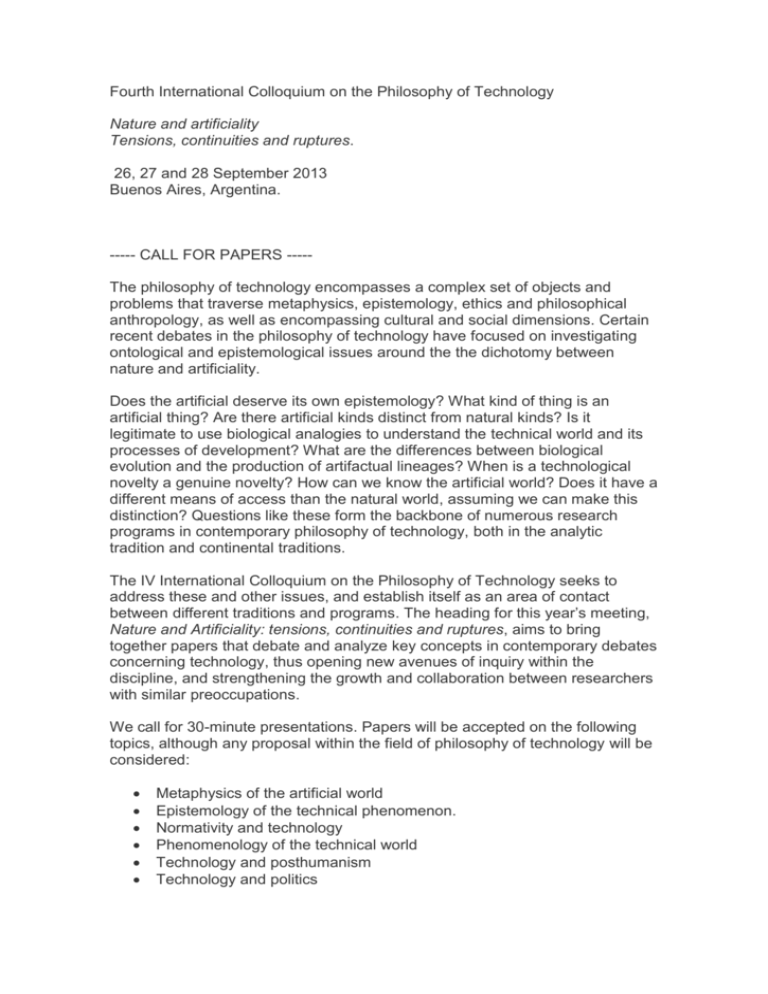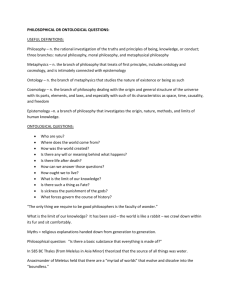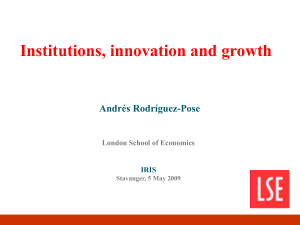Fourth International Colloquium on the Philosophy of Technology
advertisement

Fourth International Colloquium on the Philosophy of Technology Nature and artificiality Tensions, continuities and ruptures. 26, 27 and 28 September 2013 Buenos Aires, Argentina. ----- CALL FOR PAPERS ----The philosophy of technology encompasses a complex set of objects and problems that traverse metaphysics, epistemology, ethics and philosophical anthropology, as well as encompassing cultural and social dimensions. Certain recent debates in the philosophy of technology have focused on investigating ontological and epistemological issues around the the dichotomy between nature and artificiality. Does the artificial deserve its own epistemology? What kind of thing is an artificial thing? Are there artificial kinds distinct from natural kinds? Is it legitimate to use biological analogies to understand the technical world and its processes of development? What are the differences between biological evolution and the production of artifactual lineages? When is a technological novelty a genuine novelty? How can we know the artificial world? Does it have a different means of access than the natural world, assuming we can make this distinction? Questions like these form the backbone of numerous research programs in contemporary philosophy of technology, both in the analytic tradition and continental traditions. The IV International Colloquium on the Philosophy of Technology seeks to address these and other issues, and establish itself as an area of contact between different traditions and programs. The heading for this year’s meeting, Nature and Artificiality: tensions, continuities and ruptures, aims to bring together papers that debate and analyze key concepts in contemporary debates concerning technology, thus opening new avenues of inquiry within the discipline, and strengthening the growth and collaboration between researchers with similar preoccupations. We call for 30-minute presentations. Papers will be accepted on the following topics, although any proposal within the field of philosophy of technology will be considered: Metaphysics of the artificial world Epistemology of the technical phenomenon. Normativity and technology Phenomenology of the technical world Technology and posthumanism Technology and politics Proposals for papers should be sent to the following email address: coloquiofdt@gmail.com with two attachments (doc. pdf, or rtf) containing: (1) An extended abstract of about 1000 words, including the title of the paper and clearly indicating the argumentative scheme of the work (this should include specifying the problem addressed, the thesis and bibliography). (2) Author's details: name, institutional affiliation, and email address. * The name and institutional affiliation of the author must appear only in the second document. Abstracts received will undergo a blind referee process by specialists appointed by the organizing committee. The latter reserves the right to request the full paper if necessary. * Deadline for receipt of abstracts: 20th August, 2013. * Date of notification of acceptance / rejection: 30th August, 2013. We can confirm acceptance before that date, in certain special circumstances (such as funding deadlines and to make time for travel arrangements) Academic Committee: Diego Lawler (CONICET-SADAF); Jesus Vega Encabo (Autonomous University Madrid, Spain), Diego Parente (CONICET-UNMdP); Andrés Vaccari (Macquarie University, Australia / Fundación Bariloche), Andrés Crelier (CONICET-UNMdP); Javier Blanco (National University of Córdoba); Mario Osella (National University of Rio Cuarto). For more information, see the website: www.coloquiofdt.blogspot.com or contact us at the following address: coloquiofdt@gmail.com Sponsored by Epistemology of Artifacts: Affordances, practical knowledge and epistemic artifacts. Project funded by the Ministry of Science and Innovation (Spain). Technical objects and technified organisms: Philosophical, aesthetic and political reflections on technology. Research Center of the Faculty of Philosophy and Humanities, University of Córdoba (Argentina). Philosophy of Technology Program. Department of Philosophy, Bariloche Foundation (Argentina).









